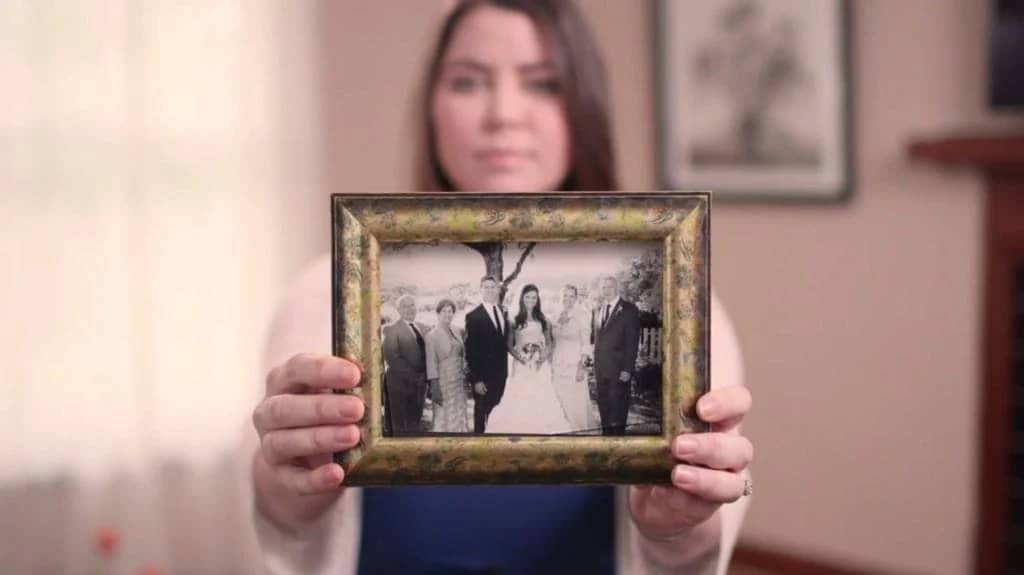
Barbara Little shared her story in February of 2023.
My parents knew they were succumbing to Alzheimer’s disease, and neither of them wanted an extended existence with end-stage dementia. They planned carefully to be sure that didn’t happen. Still, as the caregiver and health proxy for both my dad and mom, I struggled to enforce their healthcare wishes for a gentle death despite their clearly outlined instructions. As anyone who has ever experienced the disease of Alzheimer’s knows, it is an irreversible and sad journey of loss. It is truly a long, painful goodbye.
My hope is that medical providers continue to improve care, until a cure is found, by taking a proactive approach to understanding their patients’ end-of-life wishes and being more willing to align treatment plans accordingly. It would make the end-of-life experience much more peaceful for their patients and less psychologically taxing for their families and health proxies.
My parents spent six decades together full of joy and adventure, both living to 86. Only their last decade was lamentable — filled with fear and uncertainty.

Barbara Little’s Parents
Their relationship was somewhat unconventional from the beginning. They met in their 20s at a party in Malibu. My dad was in the Reserve Officers’ Training Corps (ROTC) and working in California at the time, while my mother was a student at UCLA. He had a red convertible and offered my mom a ride from the party; they drove along the Pacific Coast Highway, and the rest is history.
Soon after they met, my dad found out he was headed to Paris for ROTC; he told my mom, “It’s now or never.” With only 12 units left to finish college, my mother was in a quandary — join him in Paris or stay behind and finish her education. She chose the former. When they returned to California a few years later, despite now having two children and pregnant with a third, she commuted 60 miles each way to finish college.
Their love for adventure and travel was evident from the beginning, and in their early 40s they sold all their belongings and moved to Europe (once again). What they had initially planned to be one year, they ended up stretching to three. Every Friday they would take off in their VW Westfalia to explore new places and returned home every Sunday night. They made friends all over the world, and when they returned to the U.S., they simply picked up their lives where they left off. When my dad passed away in September 2020 and my mother in January 2023, countless individuals came forward to share their memories of how much they cherished my parents’ magnetic, energetic, optimistic and adventurous personalities.
While my parents were seemingly spontaneous, they were also thoughtful planners. My dad had always been analytical and financially conscious, and my mom the consummate researcher. He and Mom outlined their will and advance directives with their lawyer. Especially in the case of dementia, they wanted no life-sustaining measures — only comfort and palliative care. In addition to filling out their advance directives and POLSTs, we also talked as a family so that I would fully understand how best to support their wishes to avoid unnecessary suffering.
In 2010 my dad started showing signs of memory loss, and he gave up driving three years later after an incident where he couldn’t recall where he had parked his car at a familiar shopping center. At his behest, I took over their finances in 2015. During that same period, my mom started exhibiting memory issues. Thankfully because her cognitive impairments started a few years after my dad, she helped take care of him and kept them doing things together. At the start of 2018, however, it became more than clear that it was time to step up their support system.
My dad kept saying he wanted to die in his home. They had planned to live in their house using at-home healthcare support until death. Regrettably, I had to inform him that their illness made it impossible for them to safely remain in their home. My siblings and I faced a difficult task in keeping them together and convincing them to move into independent living and later assisted living. Although they were initially hesitant to move, they eventually adjusted to their new surroundings and found some joy in making new friends, participating in community activities and being relieved of daily chores such as cooking, cleaning and home maintenance.
But when the COVID pandemic hit, the isolation caused my mother’s condition to worsen rapidly. She became disoriented and packed a bag to leave the assisted living facility, leading to the decision to move them both to a memory care unit for closer supervision.
As their caregiver while they were in memory care, it was a continuous struggle despite their advanced, incurable, terminal illness to enforce their stated wishes for no “curative” interventions to prolong their life. I was astounded at the numerous efforts I had to make to stop other caregivers, doctors and providers from intervening to prescribe or assert their “care” to prolong both their lives, despite their wishes and obvious desire for a peaceful and natural death.
Near the end of life, it was frequently necessary to remind medical providers of my parents’ “Comfort Care Only” wishes as stated in their POLSTs and advance directives. Despite having these important documents on file, the providers often recommended treatments that were in contrast to my parents’ wishes. I had to keep asking, “You have the POLST, right?” It was really unpleasant. I kept reminding myself that I was carrying out my parents’ wishes, though I almost always felt at odds with their healthcare providers. It was never said, but it felt like they thought I had an ulterior motive, like I had something to gain from their deaths. The burden of advocating for their stated palliative care generated a lot of anxiety because of the healthcare providers automatic responses to treat.
Physically my parents were otherwise healthy for their age, so they were not on any medications except those prescribed for dementia-related anxiety. However, there were several occasions near the end especially where health interventions or procedures were prescribed that did not fit with their wishes and did not meet the meaning of comfort care or palliative care. Prolonging their struggle was not what Mom or Dad wanted.
There were instances we faced again and again where I kept having to ask, “To what end? What’s the purpose of the things you’re suggesting? Will this provide more comfort and eliminate pain? Or will this treatment cause more suffering?” I had to question doctors on medical decisions repeatedly to ensure their interventions were not rote curative decisions but instead recognized my parents’ advanced illness and irreversible state so their discomfort was not increased. I needed partners in their care to help fulfill their end-of-life choice. Instead, I felt alone in contemplating: Will this treatment cure them? Is it too invasive? Should we intervene?
I’m grateful that my parents made their wishes clear in writing and in our conversations. Their directives were my backstop. Psychologically, it provided me the fortitude to intervene in situations to give them what they wanted. Providers were more likely to listen when I started with, “This is what they outlined as their wishes, in writing and verbally.” Though I had to produce the paperwork; if I hadn’t, I don’t think they would have listened to me as much, even though I was their healthcare proxy.
In August 2020, my father had a bad fall and broke his hip. With him in significant pain, we moved forward with surgery and rehab, though he didn’t improve and passed away the following month.
In autumn of 2022, my mom’s health declined rapidly. She was struggling with mobility, losing weight, and becoming increasingly confused and isolated. She had been on hospice since March 2022, but it was always like they were just on standby. Once we needed their support, it felt like once again there was a tug-of-war. In January it was clear she was nearing the end, yet the process to get the doctor’s approval for an increase in pain relief and anxiety medication was unnecessarily arduous. Helplessly, I watched her in distress. I argued with medical staff to do whatever they needed to provide her comfort, that this was not the “good death” we had been promised.
My guidance for families is to plan for the worst-case scenario and to plan early. In addition, if family can shoulder some of the burden by taking over finances, bill paying or other decisions, that is helpful. My parents were far more lost than they let on, and our taking over some responsibilities relieved them of those concerns. We never know what we’ll be up against, so it’s best to get informed and get things in order. Even though we faced challenges with the healthcare system along the way, it would have been much worse if I didn’t have the clarity of my parents’ wishes. My experience as a proxy is that healthcare providers’ understanding and acceptance of advanced terminal illness is inconsistently applied and can lead to a delay in important palliative care.
The repercussions of futile “curative care” versus “comfort care” in an Alzheimer’s patient can mean painful or unnecessary routine interventions instead of addressing the physical comfort, emotional and mental needs, and spiritual needs of the patient in the last days of life. Having a healthcare directive, a designated advocate and a doctor who accepts palliative objectives can significantly improve the end of life for a patient with an irreversible terminal disease — and, mean that your last months or days with a loved one will be spent on sharing love and important moments peacefully.
My fervent hope, however, is to healthcare professionals: Learn how to bridge both ends of the spectrum — sustaining life and providing care that aligns with patients’ end-of-life values. Healthcare providers should be partners, not obstacles, in advocating for their patients’ wishes.

Nothing advances our common cause of improving end-of-life care like real stories. Inspire others and drive change by sharing your story today.
Mail contributions directly to:
Compassion & Choices Gift Processing Center
PO Box 485
Etna, NH 03750